Emin Guliyev and Etibar Guliyev are residents of Khojaly. They are two Khojaly residents who lost family members, relatives and friends in the massacre committed by Armenians 30 years ago. Although Emin was a 4-year-old child during the Khojaly genocide, he witnessed the events live. Although Etibar was born about a month after the massacre, he could get all the information from his parents, who witnessed the tragedy. Impressions of the genocide, which has always been the main topic of their homes, especially on the anniversary of the tragedy, have almost made Etibar a witness to that bloody event. Both Emin and Etibar spent their childhood as IDPs. Every year on this day, they commemorate the anniversary of the tragic death of their loved ones.
On the eve of the 30th anniversary of the Khojaly genocide, a Report correspondent spoke with Emin and Etibar.
- Emin, how do you remember the Khojaly tragedy?
- I remember the Khojaly tragedy as childhood trauma. I remember that day only as a difficult, painful, bitter, tragic and catastrophic date. Unfortunately, I find it difficult to express this tragedy in words.
- What happened that day? Do you remember anything from that night?
- You know, everyone knew in advance that black clouds hovered over Khojaly. Because the town was under siege for several months, it was left helpless. Later, residents could be evacuated only by helicopter. However, after the "helicopter tragedy" committed by Armenians on that eve, the transportation of people by air became dangerous. Therefore, the people had no way out. As the town was under siege, the roads to Aghdam and other districts were closed. Although I was a child, I still remember the events. On the night of February 25-26, Armenians suddenly attacked the city. Suddenly panic broke out, people ran away in various directions, trying to save their life. The ruthless enemy committed atrocities against children, women, killed innocent, helpless and defenceless people with exceptional cruelty.
- But was not there any help to protect the city?
- There was almost no help. Only male volunteers from the city's own population formed a self-defence group. A small team from the Azerbaijani army was involved in defending the city. All this was a tiny force in the face of a ruthless, cruel, savage armed enemy.
- Were there any close relatives among the defenders of the city?
- Yes. My father, uncles, and other relatives were closely involved in the town's defence. They took turns guarding the city. When the Armenians suddenly attacked at night, some of the men in the self-defence forces started to fight, while others were involved in the evacuation of the elderly, women and children. But, of course, it was impossible to defend the city by meeting tanks with shotguns.
- Which of your family members did you lose during the Khojaly tragedy?
This question made Emin sigh deeply before he could answer. To be honest, like every surviving Khojaly resident, I thought that Emin had probably lost a relative. That is why I addressed the same question. But I did not know that he had suffered more severe losses among his family members and lost several loved ones. So I noticed that my question took Emin almost back to a time thirty years ago. My saddened interviewee begins to answer my question in a low voice and stares at his right hand, counting with his fingers:
- My father, sister, grandmother, grandfather, uncle, cousin, aunt, her spouse and daughter, mother's uncles and aunts were martyred along with their children. They all died that night, on the night of February 25-26.
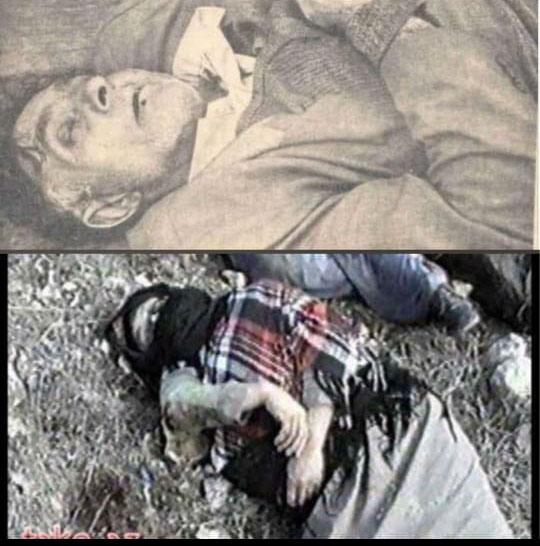
True, after this question, I realized that I made Emin's 30-year-old wounds bleed again. But when I asked the question, I did not think that so many people from his family and relatives were killed. At the same time, we continued our conversation around other questions because I noticed that he was a little upset, seemed willing to talk...
- How old were your father and sister at that time?
- My father was 29 years old and my sister was 7 years old.
- Where are they buried?
- They were buried in the Aghjabadi district.
- May God bless all our martyrs. We must always keep their name alive ...
- Amen. Yes, that's right. The names of all martyrs must live. My brother was born after my father was killed. That is why my brother is named after my father. I also named my daughter after my martyred sister Sevinj.
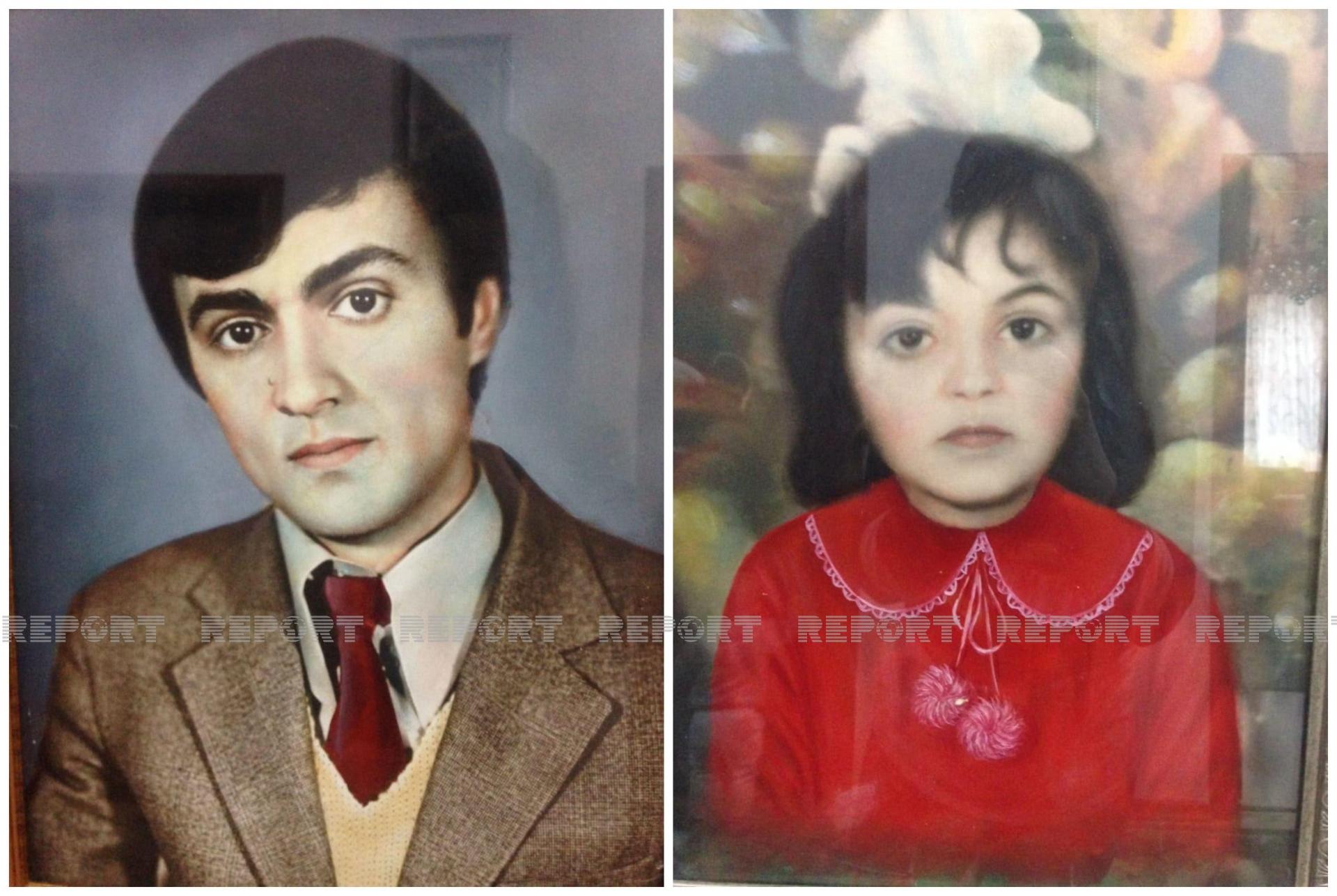
- May God protect both of them and let them grow up happy.
- Amen, thank you very much.
- Emin, you probably had a relative or close friend who went missing during the tragedy...
- Yes. One of my mother's aunts went missing with her three children and her husband, and their fate is still unknown. One family was killed entirely. Besides, my mother's cousins are missing.
Noting that it is difficult to find a family from Khojaly that did not suffer losses, Etibar joins our conversation:
- The children of my mother's cousin Tahir Hajiyev also went missing that night. We still do not know whether they are alive or dead. Some of the dead were buried in Aghdam and some in Aghjabadi. After the liberation of Aghdam, we see how many graves have been discovered. Most of the graves found there belong to Khojaly residents. Because the graves of around 400 Khojaly victims are unknown.
At that time, people were also taking people's corpses to the forest. The corpses saved through the forest were washed in the Aghdam mosque. After the bodies were discharged from the Aghdam mosque, and then it was decided where they would be buried. My grandfather, Allahverdi Guliyev, was buried in Aghdam, but we still do not know where the grave is.
Stressing that there were many corpses of Khojaly residents left in the hands of the enemy, Emin recalled that not all 613 people's bodies were brought:
- Among them were those burned or mass buried by Armenians. After the occupation of Aghdam, the Armenians continued their vandalism and savagery. All graves of Azerbaijanis were destroyed.
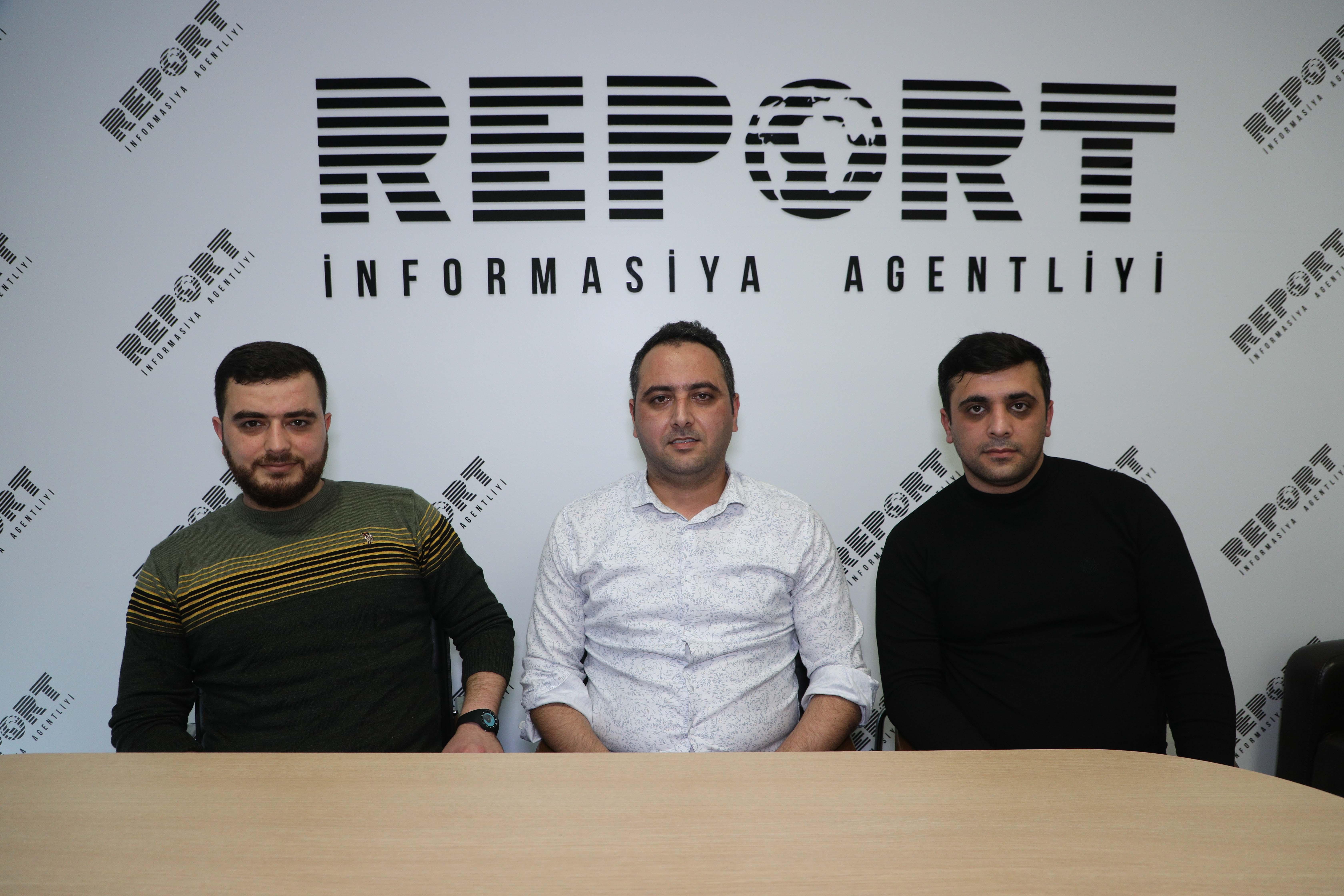
- It might be assumed that every Khojaly resident had at least one relative killed by Armenians.
- Yes, at least one person ...
Etibar also thinks that at least one person was martyred:
- One is too few, I think... Because Khojaly was a small town, all the residents of this city were related to each other. There were 18 of us in the class, 11 of whom had no father. Those fathers died in the Khojaly tragedy.
- Emin, how did you survive that day? How did you get out of town?
- That night, everyone tried to escape, but all roads were closed. The road to Aghdam was also closed. Therefore, the only way out was to walk. At that time, we also left Khojaly and walked to the village of Shelly in Aghdam on foot in the cold, snowy weather along muddy paths.
- Where did you go after Aghdam?
- Both my father and mother were natives of Khojaly. So when we left town, we had nowhere to go. Because all our relatives were living in Khojaly, they all became IDPs like us.
- To whom do you owe your survival from the tragedy?
- To those who fought and fell in the town. They appeared in front of the tank with rifles or machine guns. Just to save time for our evacuation. Some of the men evacuated the residents, and some guarded the city. In fact, those who tried to defend the town were small in the face of the enemy's army. Those in front of the large savage, armed army, military equipment, those who defended Khojaly with shotguns, confused the enemy by keeping them busy so that the residents could escape and be evacuated. My uncle rescued us; he was in the battle at that time. But after some fighting, he came and took us out. My father and uncle were martyred in a fight. Other relatives were wounded while leaving the city.
- Did you walk to Aghdam that day?
- We went to Aghdam that day. Then we came to Baku and lived here for a while. After that, we settled in Naftalan.
My interviewees talk about the history behind the photo of a man carrying a child in his arms, which went viral on social networks. During the conversation, it turns out that the man in the photo was Etibar's uncle, and the child in his arms was Emin's cousin.
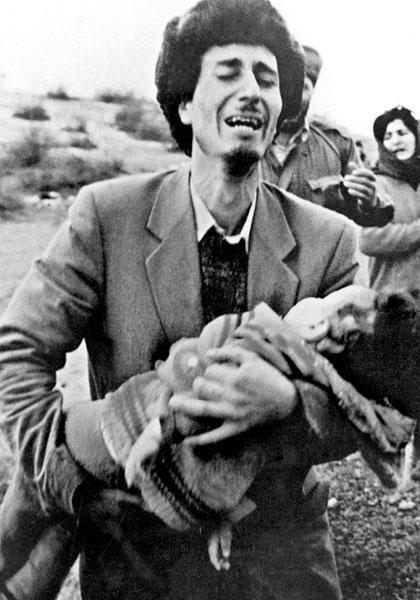
- My uncle's infant son Samir was injured together with my aunt when he was in her arms. Etibar's uncle tried to take the child to the hospital. But he couldn't manage; the child died in his arms. The photo shows Etibar's uncle holding the baby's body in his arms and crying.
Etibar says that his uncle kept the body of the dead child in the forest with himself one night:
- My uncle hid the child's body in a river flowing through the forest not to lose it. My uncle was 29 years old when the photo was taken. But against the background of the tragedies, he looks very old.
- Etibar, even though you were not born yet at that time, did your parents and family members tell you about how they escaped?
- My family went from Khojaly to Aghdam, then to Goychay, Barda, and then to Naftalan. We grew up in the Khojaly camp in Naftalan. We grew up in an environment of IDP financial hardship. IDPs better know the severity of these difficulties. Imagine that there is a generation that has been tragically expelled from their homeland, lost their loved ones, and raised with material and spiritual hardships. This generation includes those born in 1988-1994. While still in their mother's womb, they heard the sounds of several tragedies, such as Khojaly, and witnessed massacres. I was born, 33 days after the Khojaly tragedy, in Goychay, where my parents and family took refuge. Because my grandfather lived in Oghuz, I used to spend three-month vacations there when I was in school.
- Etibar, you have lived in many many places? Aghdam, Goychay, Barda, Naftalan, Goranboy, Oguz and now Baku ...
- It happens to IDPs who are expelled from their home... IDPs do not have a home.
- Emin, what do you think it feels like to be expelled from the place of birth?
- I would like to add that it is a big gap. You feel like a guest in your homeland and there are hopes that you may return home at any moment. We are not abroad, we are in our homeland. But we are not at home.
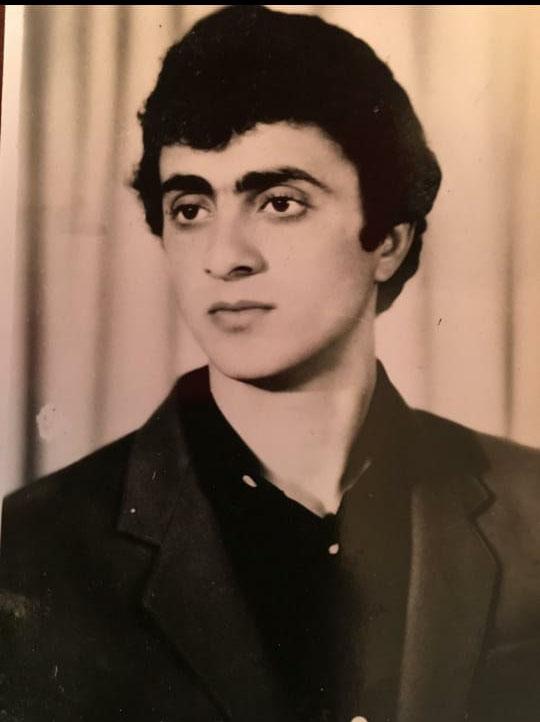
- How do you feel when you commemorate the Khojaly tragedy every year?
- Although I was a child at that time, I remember everything clearly, as if the tragedy happened not 30 years ago, but three days ago. Every year these days, our wounds, which never heal, bleed a little more. If it didn't bleed, it might have recovered, but it's impossible for it not to bleed because we feel those events once a year. These wounds are not of those that can heal in 30 years. Maybe good things will happen after we return there. This pain has been living with us for 30 years. February is a black month for Khojaly people. I feel like a 4-year-old child these days every year. The Khojaly tragedy was universal and unprecedented. They did not care about babies, pregnant women, the elderly, and they killed people with exceptional cruelty and brutality.
Emin Guliyev currently works at the State Customs Committee. His place of work is at the Heydar Aliyev International Airport. He said that his greatest dream is to work at Khojaly Airport. Emphasizing that he has endless hopes for this, he says that he is sure that this dream will come true.
Etibar works in the private sector. During our conversation, he revealed that he was closely involved in campaigns to help the Azerbaijani servicemen during the Patriotic War:
- During the Patriotic War, we provided assistance to our army with the support of our people. Of course, our army did not need it, the material support of the Azerbaijani Army is already sufficient. Just every Azerbaijani tried to contribute in some way to the 44-day battles, to provide some form of help. We also tried to serve by providing assistance on the home front. Our friends, relatives and acquaintances used to send various gifts to our soldiers through us. When our servicemen found out that we were from Khojaly, they took special care of us even during the most hectic time of the war.
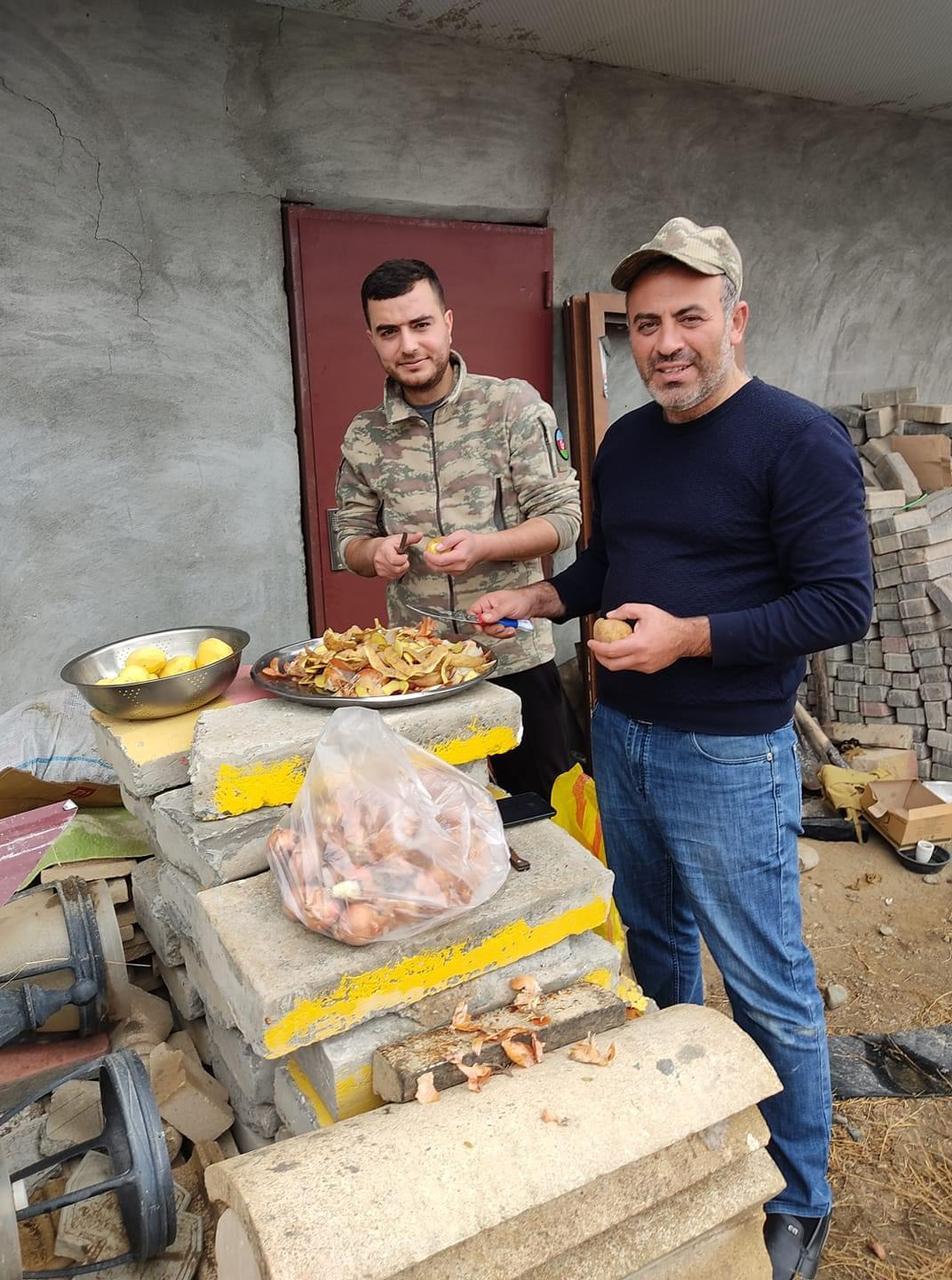
- How do you remember the day the war started?
- Although the area where we settled in Goranboy is Khojaly town, people from Shusha, Lachin and Kalbajar also live there. On the day of the war, all the IDPs who saw the military convoy were happy. In the early days, everyone began to support our army with a smile, joy, applause and prayers. Then everyone began to show their support, both materially and physically. Because everyone thought that they had a moral duty to liberate the lands from occupation, and therefore everyone wanted to do something. On that eve, a 75-80-year-old woman was distributing bottles of water to the cars carrying our soldiers. A woman from Kalbajar sent the blanket of her 3-year-old child to our servicemen. All this gave us extra strength to support our army.
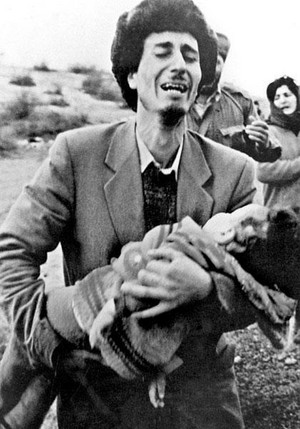
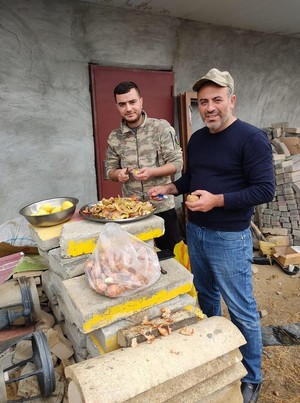
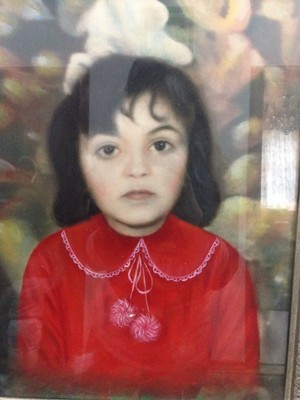
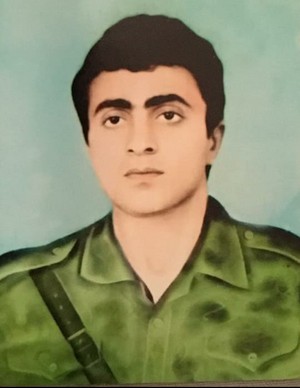
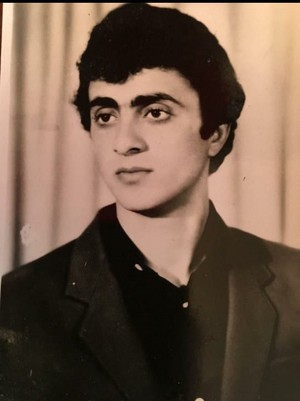
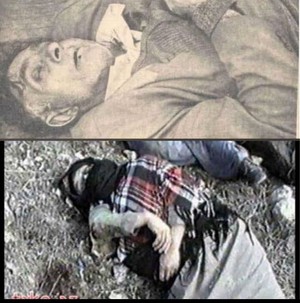
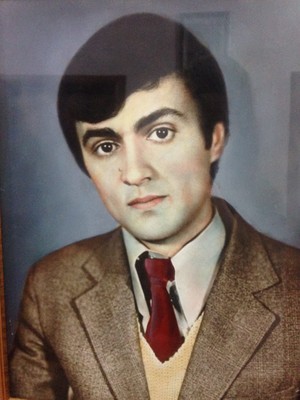

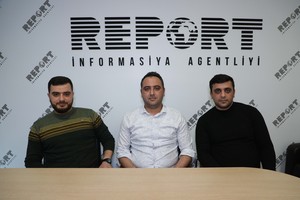



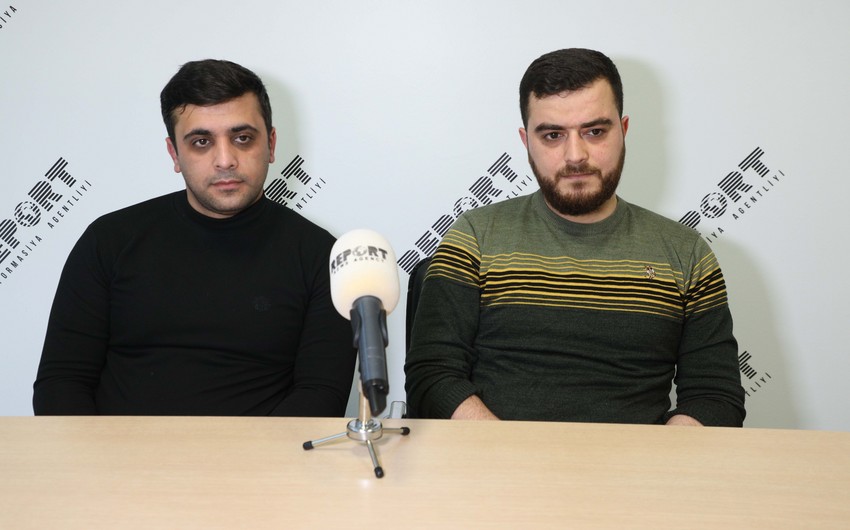 https://static.report.az/photo/47405846-a7bb-3e74-87cb-6047c7d7131f.jpg
https://static.report.az/photo/47405846-a7bb-3e74-87cb-6047c7d7131f.jpg

